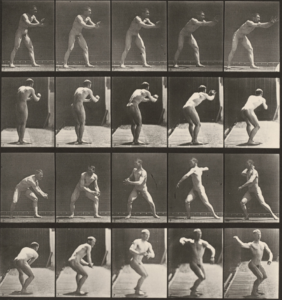Review by Michael Shou-Yung Shum // September 6, 2016
Sibling Rivalry Press, April 2016
Paperback, 240 pp., $19.76
First things first—Megan Volpert informs us in her introduction to 1976 that she was born in 1981, and that, therefore, this invitingly messy collection of essays, observations, and verbal assaults on our Bicentennial Year is by definition not a retrospective, but a retrospeculative. In other words, this is a history book, and Volpert is one hell of a historian. Over 230-odd pages, she vividly dissects the meaningful political and cultural events of that contentious year, filtered through a deeply subversive lens. Her perspective: an admixture of punk rock informality and sharp, incisive sense of humor of the thirty-something author who, Volpert tells us, would have been dismissed as a total sell-out by her teen self. 1976 attests to the author’s ability to braid many disparate, fascinating elements into a most delectable Gordian knot, spinning off constellations of cultural references into the atmosphere effortlessly. The author’s fertile imagination very much appeals to the hyper-distracted reader of today, and every chapter opens to a new set of mysteries.
Each chapter is a month of the year except July, the Bicentennial month, gets two chapters and an interlude all on its own. Most aggressively interrogate the accepted history behind the events that transpired in that particular month. The focus is on the newsworthy—the Carter-Ford election, the Soweto student uprisings, the film Taxi Driver—but the character of each essay is quite different. They range from the horrifying, like the author’s brutal reflections on Pol Pot’s regime, to the sublime. Always rumbling underneath is the powerful engine of the author’s voice—sharp in its pivots, and authoritative:
Just as my body grows old and crabby, so too does the body of my bike. I have to learn its preferences and be accommodating. Likewise, my bike will have to accept the fact that we leave the house at 6am to go to work, no matter how wet or cold it is. We are sharing a body, making decisions together. If the bike does not always do what I tell it to do, it’s because I have failed first to respond to its needs in some way. A bike must be kept happy or it cannot keep its driver happy. At our best, we are sharing one cyborgian consciousness and cruising together in one body—corporeal, incorporated. (73)
Like the bands she espouses—The Ramones, The Sex Pistols, Joan Jett—Volpert 1) takes shit from no one, and 2) tells it like she sees it. Which is to say, we trust her like we trusted our favorite bands in high school. Her knowledge of the decade is nigh-magisterial, but the book teaches the reader lessons about today, how the more things change, the more things stay the same; how outrage always ends in complacency; and how getting old is about learning how to buy into something you never wanted to believe in the first place.
ABOUT THE REVIEWER
Michael Shou-Yung Shum’s stories and essays have appeared in The Writer’s Chronicle, Barrelhouse, Midwestern Gothic, and Burrow Press Review. His first novel, Queen of Spades, will emerge October 2017 from Forest Avenue Press.









